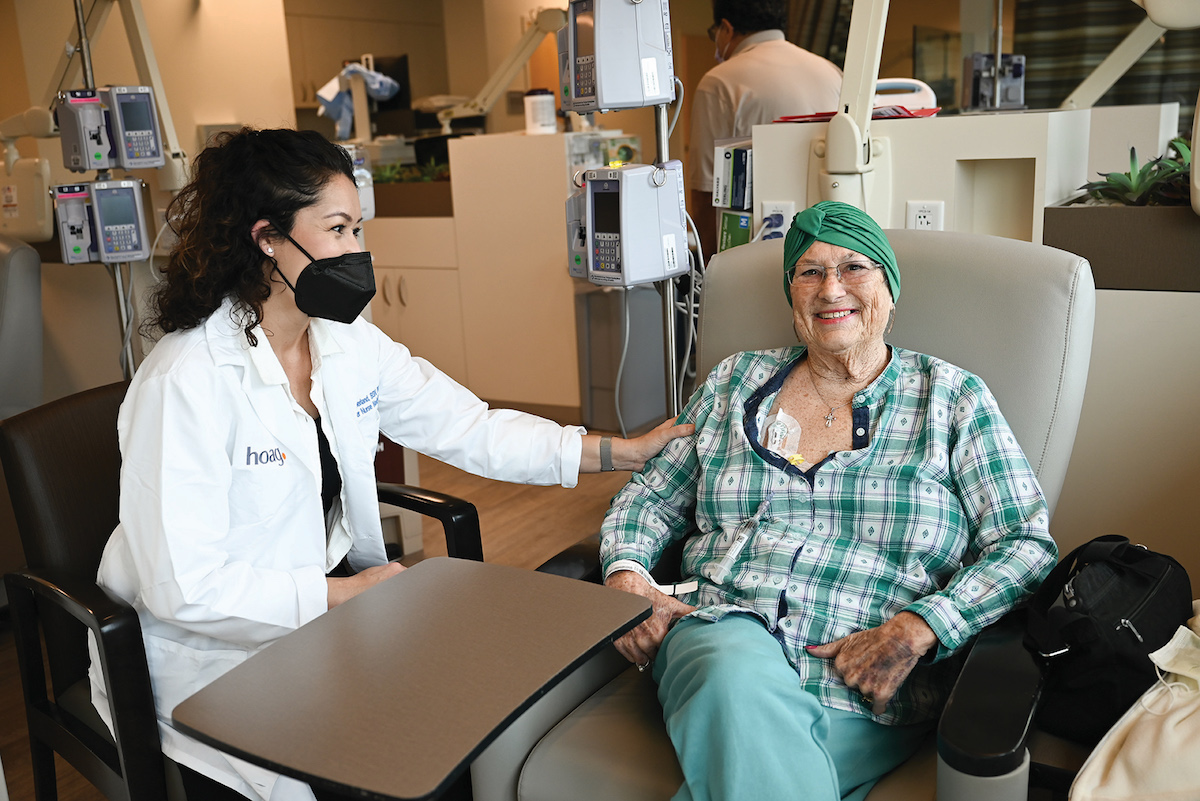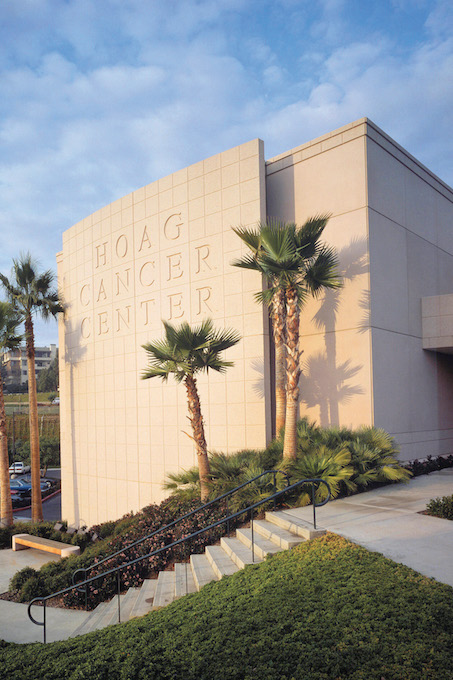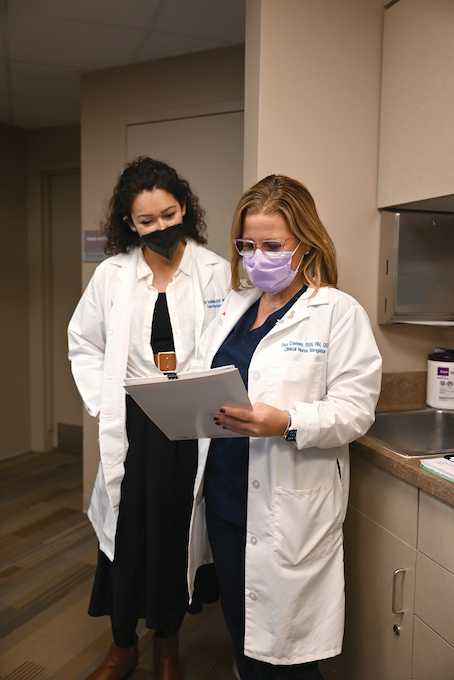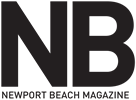
Hoag provides a helping hand for patients dealing with serious conditions, from scheduling appointments to connecting them with resources, answering questions and weighing treatment options.
By Julia Clerk
To discover that you’ve been stricken with a potentially life-threatening illness is no doubt the scariest diagnosis imaginable, with so many questions flooding your mind.
Hoag Memorial Hospital Presbyterian works with clients—through its various institutes focused on cancer, neurosciences, digestive issues, women’s health and heart conditions—to provide them and their families a means of navigating their health care journey.
Part of this process is assistance provided by clinical nurse navigators who become a patient’s go-to resource for answering questions about the disease/condition and treatment options. They help in selecting specialty physicians and surgeons as well as scheduling any necessary diagnostic testing, surgeries and appointments before or following an operation.
In addition, Hoag nurse navigators specialize in certain diseases or conditions so that patients can benefit from their expertise, contacts and assessments.
Complex psychosocial needs are also assessed. Nurse navigators can connect patients and loved ones with support groups, educational programs and more. They’re always available to answer questions and often stay in touch with patients for years after recovery.
“Hoag has had a navigator program for over 15 years,” says Dori Holnagel, vice president of the Hoag Family Cancer Institute. “Over this 15-year period, the breadth and depth of services has expanded significantly based on our patients’ needs.”
Holnagel points to the cancer support aspect. “We evolved from a navigation platform supporting specific cancer types to a navigation program that supports all cancer types. We transitioned from general navigation to site-specific navigation; just as our cancer program has specialty-trained physicians.”
A Care Concierge
Describing it as a highly individualized program, Holnagel says its nurse navigators “meet the patient where they are in their journey and address the needs they specifically have. Our patients are extremely grateful for the support our navigation program provides.”

Sandy Southerland is a clinical oncology nurse navigator with Hoag and says she was attracted to this role after being an oncology-certified nurse for more than a decade; she is also a registered nurse and has a bachelor’s degree in nursing.
“I saw the need to give patients that extra TLC … as they are going through one of the most stressful times in their lives,” Southerland says. “Navigators speak with patients not only when they are receiving treatment sessions. We assist with resources, help manage side effects and provide much needed emotional support.”
Previously she worked in a variety of health care areas, mostly with infusions but also in clinical research and in a clinical setting. “Qualifications are important,” Southerland says of the nurse navigator position, “but the most important qualification is to be a very empathetic person.”
Added Support
For even more assistance, nurse navigators often guide patients to one of many support groups that Hoag offers free of charge to patients and families including five different neuroscience support groups and two different heart and vascular support groups.
The cancer support groups are led by licensed clinical social workers and oncology nurses with discussion centered around issues faced by cancer patients and their loved ones. Additionally, Hoag offers free cancer education programs for those seeking to broaden their knowledge.

Southerland says the most rewarding part of her job is when she’s put in touch with a newly diagnosed patient who is feeling overwhelmed and lost and she is able to steer them toward accurate information on the diagnosis and tailor an oncology team to fit their specific needs.
The next phase is providing details about support groups, counseling and dietitians. “At the end of the conversations most patients are appreciative, sometimes saying they didn’t even expect to have someone call them back,” Southerland adds.
She readily acknowledges that it’s a very challenging job that often carries over into her nonworking life when the condition of certain patients remain on her mind. “It’s a balancing act of doing the best you can when you are at work,” she says, “but then trying to refresh myself by the next day.”
Besides clinical support, Hoag clinical nurse navigators are also integrally involved with the education of patients, loved ones and the community as a whole. In collaboration with physicians, they participate in community education forums and screening for early detection efforts and, where available, educate patients on appropriate clinical research studies.
A Firsthand Account
Nurse Navigators helped Yvonne Cole through cancer treatment.
Irvine residents Yvonne Cole and her husband, Dave, were volunteers at Hoag for seven years, Yvonne working in the gift shop and Dave in patient transport. She was diagnosed with bladder cancer in February 2022 and had surgery in July at Hoag Hospital Newport Beach.
“It wasn’t until my own cancer diagnosis that we were connected to Sandy Southerland and experienced Hoag’s nurse navigators firsthand,” Yvonne recalls. “Sandy was my nurse navigator and she helped me every step of the way—from initial diagnosis and tests to connecting with my surgeon and answering all of our questions.
“I don’t know how I would have gone through this cancer journey without her. She really helped me understand what was going on and answered all of our calls and questions along the way.
“She’s an incredible listener and was able to reassure me, provide guidance and, most of all, support me on whatever decisions I made. She truly had my back throughout the whole process. She’s a lifesaver.”
Today, Yvonne is in good health and she is cancer free. She will soon start her post-surgery infusions to keep the cancer away. And, yes, she’s still in touch with Southerland.




